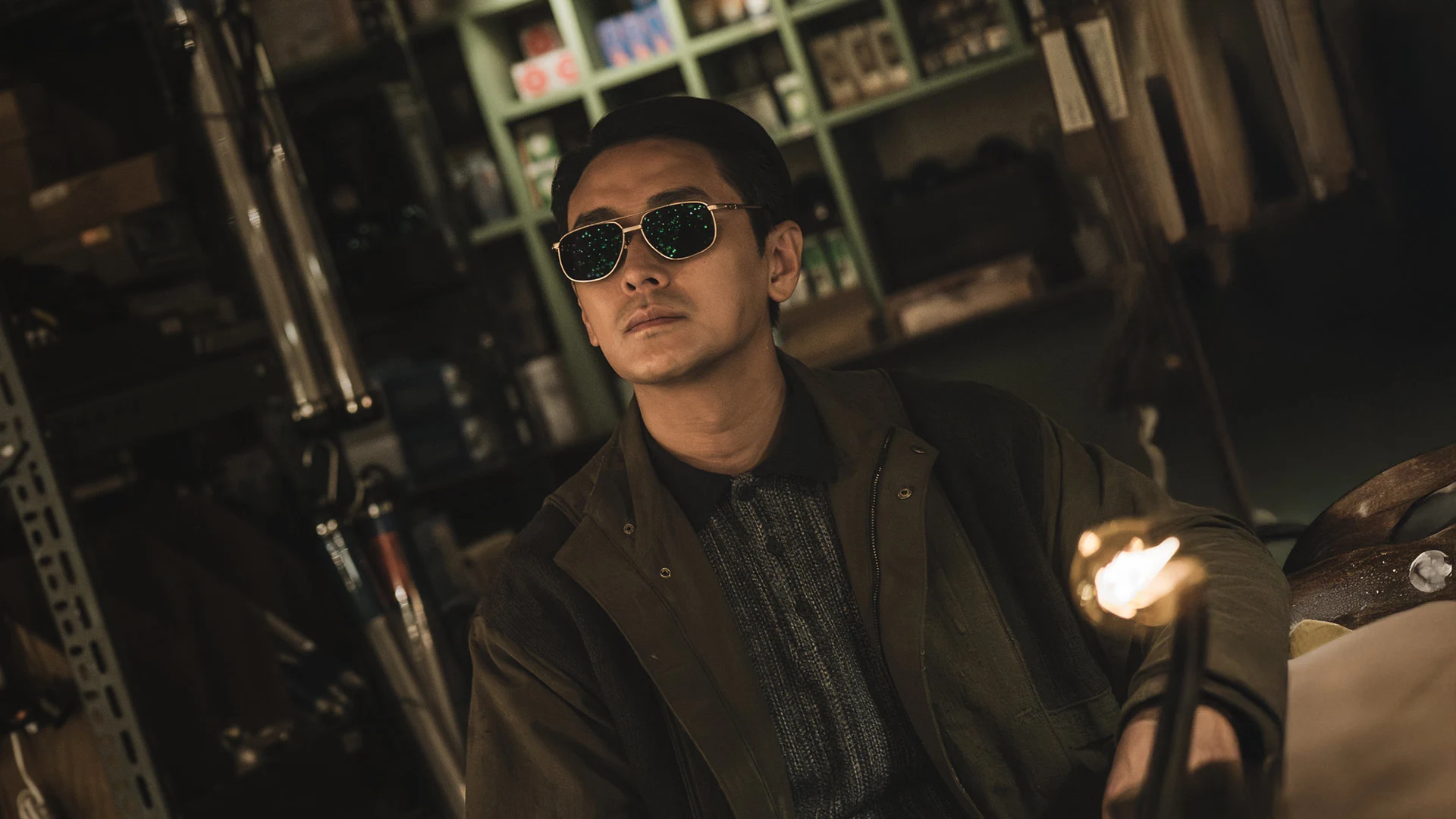“Mom, you smell really good, like flowers.”
—Hyunju, episode 9
In a lesser drama, that line might feel too tender. But in Light Shop, it lands like a whisper from the afterlife—soft, devastating, and final. It doesn’t ask for your tears. It earns them.
Created by webtoon artist Kang Full and brought to screen by director Kim Hee-won (Vincenzo, Little Women), Light Shop doesn’t roar. It doesn’t scream. It flickers—quietly, deliberately—like a dying bulb, drawing you into a world where the supernatural is merely a backdrop for the far scarier terrain of unresolved grief.
At its core, Light Shop is a tale about what it means to mourn, to remember, and to move forward when the past refuses to let go. It disguises itself as a horror series, then slowly reveals itself as something far more painful: a meditation on regret.
Horror, Interrupted
The early episodes play out with eerie precision. A mysterious lamp shop stands quietly in the city, its fluorescent lights drawing in customers who all seem to carry the same thing: an invisible, unbearable weight. The owner, played by Ju Ji-hoon with understated gravity, offers his clients a single opportunity—one last conversation with someone who has died.
There’s no spiritual mumbo jumbo, no lore dump. The rules are never explained in full. The ambiguity is the point. What matters is the emotional weight of each encounter. A child reaching for her mother. A man trying to say sorry. A girl grieving the dog that waited for her return.
And yes, there are ghosts—but none of them are as frightening as the living people who can’t let go.
I came for the horror, but left with a bucket of tears.
The Weight of a Name
Light Shop doesn’t operate like a conventional narrative. Instead of a protagonist with a singular arc, we are presented with an ensemble of fragmented lives. Each episode peels back the layers of a new character: Hyunju, the young girl separated from her mother; Hyunmin and Jiyoung, a queer couple whose love story resists erasure; even a loyal dog whose longing transcends species and mortality.
These aren’t just side stories. They’re mirrors—reflecting back to us our own small griefs, our own impossible wishes. Life can really turn upside down in a blink of an eye. One second you’re just living your life, then a traumatic and painful accident just happens.
In one devastating episode, the shop owner himself reconnects with his deceased daughter. It’s a sequence performed with such restraint and emotional clarity that the silence becomes louder than any dialogue.
The show never indulges in melodrama. Instead, it chooses quietude—those long pauses when no one speaks, when time seems to hold its breath, waiting for someone to say the thing that was never said.
Time Is a Loop
There’s something methodical about how Light Shop paces its sorrow. It doesn’t rush to deliver emotional payoffs. It lets each moment linger, trusting the audience to sit in the discomfort.
This is where director Kim Hee-won’s touch becomes most visible. Under his guidance, every scene feels like a still life in mourning. Wide frames, long takes, shadows that fall just slightly too long. Even the lighting tells a story—flickering bulbs echoing the fragility of life itself.
This makes me thinking that our lives are like lightbulbs, so luminous and bright. Then we start to flicker as we get closer to death. Suddenly everything blackens, and we live in a world of silence where no one can reach us.
Love, Actually
But for all its ghosts, Light Shop is not about death. It’s about love. Love in all its forms—messy, unspoken, misunderstood, and sometimes forbidden.
Hyunmin and Jiyoung’s arc is especially poignant. While Korean dramas have often been criticized for queerbaiting or tragic LGBTQ+ endings, Light Shop quietly subverts this. Their story, rooted in loss, evolves into endurance. Maybe one of the only major happy aspects in the series. A deserved payoff.
There’s no triumphant parade, no revolutionary speech. Just two people, holding onto each other in a world that keeps trying to forget they existed.
The Bus, The Dog, The Girl
Some of the most emotionally arresting moments come from the most unexpected places. A dog’s story, narrated through memory and loyalty, left me broken. I am not a pet lover but the emotional damage caused by the dog’s story is beyond repair.
The bus accident, a recurring visual motif throughout the show, is perhaps the narrative anchor. We don’t know who survived, who died, or what really happened—not at first. The mystery unravels slowly, painfully, like pulling at a scab.
And then there’s Hyunju. Small, wide-eyed, and innocent. Her story isn’t just tragic—it’s raw.
Nothing more needed.
A Masterpiece of Restraint
Ultimately, Light Shop succeeds not because of what it says, but what it chooses not to say. It doesn’t offer neat resolutions. It doesn’t tie up each character’s arc in a bow. Instead, it leaves threads hanging—deliberately frayed, as grief often is.
Its final episode doesn’t crescendo. It dissolves.
And yet, when the credits roll, there’s a heaviness in your chest that lingers.
Few shows attempt to answer the impossible question: What would you do for one more moment with someone you’ve lost? Fewer still dare to answer: You wouldn’t know—until it’s too late.

Leave a Reply